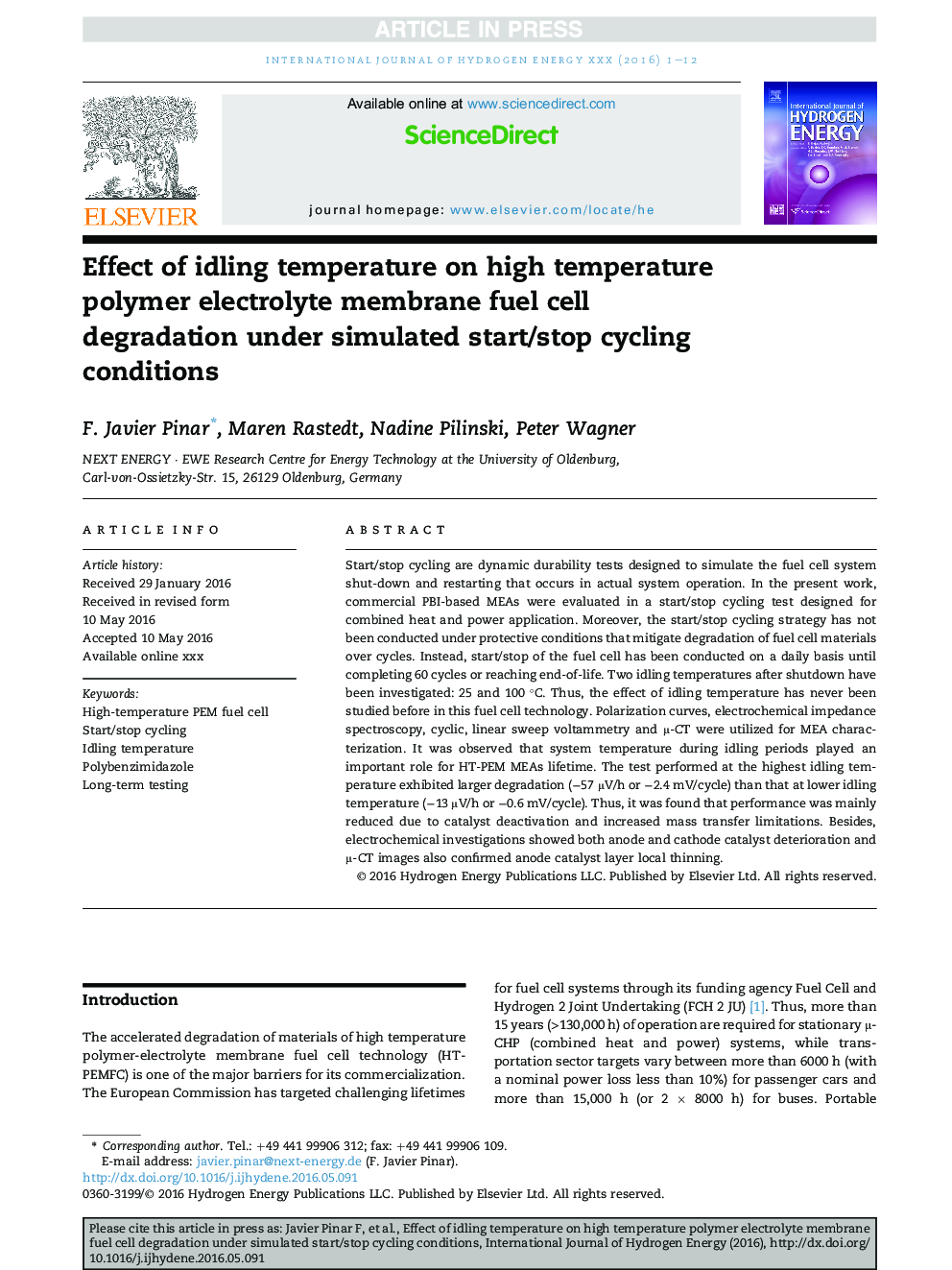| Article ID | Journal | Published Year | Pages | File Type |
|---|---|---|---|---|
| 5147197 | International Journal of Hydrogen Energy | 2016 | 12 Pages |
Abstract
Start/stop cycling are dynamic durability tests designed to simulate the fuel cell system shut-down and restarting that occurs in actual system operation. In the present work, commercial PBI-based MEAs were evaluated in a start/stop cycling test designed for combined heat and power application. Moreover, the start/stop cycling strategy has not been conducted under protective conditions that mitigate degradation of fuel cell materials over cycles. Instead, start/stop of the fuel cell has been conducted on a daily basis until completing 60 cycles or reaching end-of-life. Two idling temperatures after shutdown have been investigated: 25 and 100 °C. Thus, the effect of idling temperature has never been studied before in this fuel cell technology. Polarization curves, electrochemical impedance spectroscopy, cyclic, linear sweep voltammetry and μ-CT were utilized for MEA characterization. It was observed that system temperature during idling periods played an important role for HT-PEM MEAs lifetime. The test performed at the highest idling temperature exhibited larger degradation (â57 μV/h or â2.4 mV/cycle) than that at lower idling temperature (â13 μV/h or â0.6 mV/cycle). Thus, it was found that performance was mainly reduced due to catalyst deactivation and increased mass transfer limitations. Besides, electrochemical investigations showed both anode and cathode catalyst deterioration and μ-CT images also confirmed anode catalyst layer local thinning.
Keywords
Related Topics
Physical Sciences and Engineering
Chemistry
Electrochemistry
Authors
F. Javier Pinar, Maren Rastedt, Nadine Pilinski, Peter Wagner,
